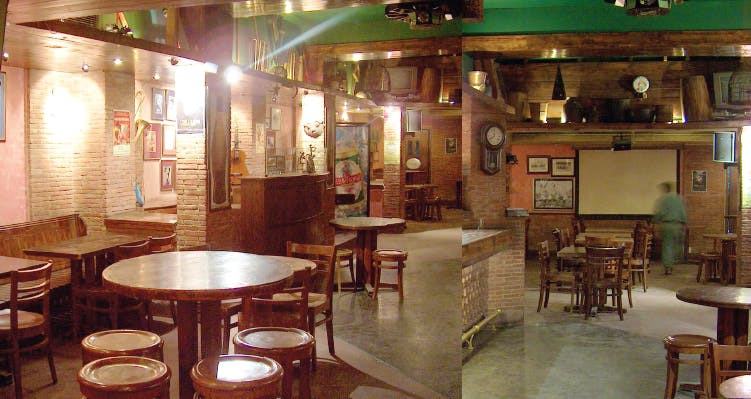By Aditi Datta
Despite the heavy use of the word in urban parlance, ‘iconic’ is a really simple concept. To us, an icon is a person, place or thing, the mere mention of which is enough to re-create through memory just what it tasted, smelled, sounded, looked or felt like. Sort of like Morgan Freeman. Okay, so we don’t really know what the great man smells like, and thankfully have no idea what he tastes like. But you say TC to us, and we’ll know exactly what you mean.
TC, in fact, doesn’t even need the formality of its full name. For anyone who lived in Delhi pre-2007, we could probably guess 8 out of 10 songs on a ‘TC playlist. Part of Turquoise Cottage’s coolness came from its music that we then thought of as independent. Long before digital downloads, loyalty to bands/tracks/genres meant actual purchase of round discs. The cool kids made these commitments like they meant it, and hung out in bars like TC where they could somehow still look cool knowing the words to the song playing.
Which brings us to another cultural phenomenon that we thanked TC for – bars. We’ve slowly let go of our ‘good girls {and boys} don’t drink’ double-standards, as seen on Bollywood screens, and owned our affinity to double pegs instead. But until a good fifteen years ago, the acceptable form of nighttime recreation – the kind enjoyed in a group of friends – was mostly clubbing. Because dancing, you see, is a part of our culture.
And this is a fact – in the late 90s {God, I’m old!}, after-dark socialising either meant dress-up-nightclubs or casual dining underpinned by hopes of a liquor license, and that someone else at the table would order the first drink. Going out for a drink, where getting a drink was really the main purpose, was less common. TC came at a time when hundreds of first-and-second-job workers said out loud that they needed more spaces to unwind, and said 'no thank you' to shaking a leg.
A bunch of like-minded boys decided they needed a sanctuary for when it was time to thank God for a certain day of the week. They opened the casual dining Chinese restaurant in 1995; but then in 1997, there came the basement. That beauty where saints and sinners realised their similarities, and in the then-legal smoky {of all sorts} air, embraced their differences. Gaurav Soral, one of the founding partners, could count on his regulars to break up fights because they were fiercely protective about TC’s sanctity.
So arose this temple of coolness, where classic rock from the speakers mixed with an army of young enthusiasts, who confidently ordered a no-frills Bacardi-Coke or Vodka-Sprite, if not a beer. They were too cool for fussy cocktails. They were even cooler on Wednesdays, when the gloriously underpaid of the glamourously over-hyped media got special access. Business cards were fervently shared across pockets in the city, and we gently broke it to button-down collared friends that they might not pass off as the copywriter whose card they brandished while ordering that brandy.
Turquoise Cottage was a cool place to be seen, and it’s hardly surprising that it was a popular date venue, despite the lack of private space – boys looked bad, girls looked bad-ass, everyone knew the lyrics. Gaurav has seen everything from first dates that became the last, to first kisses that turned into marriages. His theory is simple – if you agree on the kind of music and the kind of life you want to have, what better reason to fall {and stay} in love? The ones that didn’t make it probably disagreed on Bono’s benevolence or bonhomie.
Sadly, the Adchini location is no more. But if you miss the Chili Chicken, Sesame Toast, and the call to simpler times, TC stands firm as a rock.
—
Turquoise Cottage runs successfully at both the Saket and Gurgaon locations. A new daytime avatar is in consideration.
Gaurav first met his wife at TC. They live in Gurgaon with their two-year-old daughter.

